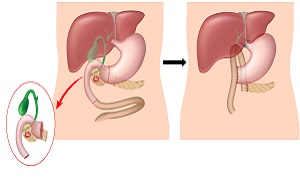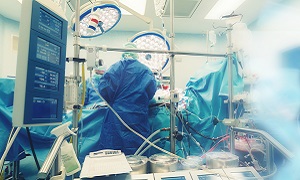Best Pancreatic Cancer Treatment Doctors in India
Best Pancreatic Cancer Treatment Hospitals in India
- City: Bengaluru, India
Hospital Highlights:
- Fortis Hospital Bannerghatta, Bengaluru was established in 2006.
- The hospital is a 276 bedded multi-specialty tertiary care facility.
- The hospital specializes in cutting-edge medical technology and dedicated patient care services.
- The hospital is equipped with state-of-the-art technologies like trans-radial angioplasty, trans-abdominal cardiac surgery, and computerized TKR navigation surgery.
- The hospital provides specialty medical services in cardiology, cardiac surgery, orthopedics, neurology, neuro-surgery, GI, and Minimal Access Surgery (MAS).
- City: Chennai, India
Hospital Highlights:
- Fortis Malar was established in 1992 and was formerly known as Malar Hospital.
- The hospital specializes in cutting-edge medical technology and dedicated patient care services.
- The hospital is multi-specialty, tertiary care facility with 180 beds.
- The hospital offers comprehensive medical care in specialties such as cardiology, cardio-thoracic surgery, neurology, neurosurgery, orthopedics, nephrology, gynecology, gastroenterology, urology, pediatrics, and diabetes.
- City: New Delhi, India
Hospital Highlights:
- Established in 1996, Pushpawati Singhania Research Institute is one of the top hospitals in the NCR region, as well as one of the top facilities in India for gastroenterology. The hospital is one of South Asia’s first institutes in medical and surgical treatment for diseases related to digestion.
- The hospital is equipped with state-of-the art facilities coupled with the latest equipment as well as renowned consultants from various parts of India as well as other parts of the world.
- City: New Delhi, India
Hospital Highlights:
- State-of-the-art technology and devoted healthcare professionals have been brought together under one roof at Venkateshwar Hospital to provide genuine medical care. The hospital’s professionals work together as a team to deliver the best possible treatment to their patients, using the most sophisticated equipment and information technology.
- Venkateshwar Hospital’s mission is to attain global excellence in healthcare by employing evidence-based, ethical clinical practices and cutting-edge technology by a team of highly skilled experts.
- City: New Delhi, India
Hospital Highlights:
- Sir Ganga Ram Hospital, New Delhi is known to provide the latest medical procedures with the latest technology in all of its units.
- The hospital has a team of reputed doctors, nurses, and healthcare professionals that ensure that patients receive quality care at affordable costs.
- Staffed with a team of highly qualified doctors, dedicated nurses, and paramedical and non-medical staff, the hospital aims to lead in healthcare delivery, medical education, training, and research.
- As per the vision of the founder, the hospital also provides free treatment to the economically weaker sections of society.
- Sir Ganga Ram Hospital also provides training to young doctors under the Diplomate in National Board(DNB) program. The DNB program at the hospital was started in 1984 and it is known for currently running the maximum number of DNB specialties in the country. It also has the distinction of having the first bone bank in India.
- City: Kerala, India
Hospital Highlights:
- Established in 2019, Apollo Adlux Hospital is the first Apollo Hospital in Kerala and the 73rd hospital owned by Apollo Group in India. With the state’s most advanced, comprehensive healthcare infrastructure and cutting-edge technologies, Apollo Adlux Hospital stands as an example of medical excellence in Kerala.
- With over 34 multi-specialty departments, the hospital believes in providing the best quality treatment to its patients at affordable rates, ensuring comfort at their difficult times.
- The 300-bed hospital is managed by a team of highly qualified and experienced experts who delivers exceptional hospitality to their patients and treats them with great compassion.
- With its affiliation with the Apollo Hospitals Group, the hospital aims in providing patients with top-notch healthcare services while also serving communities in Kerala.
- The hospital has good railway and road connections, and is conveniently close to Cochin International Airport.
- City: Gurugram, India
Hospital Highlights:
- Situated near DLF Cyber City, Gurugram, Narayana Superspecialty Hospital is one of the top medical facilities in the Delhi NCR region, catering to the needs of the people. Known for its commitment to quality medical care and patient service, the hospital is a state-of-the-art facility with planned and well-equipped sections, which includes a spacious OPD area as well as comfortable patient rooms.
- It is the closest super-specialty hospital from Indira Gandhi International Airport towards Gurugram, and also the nearest super specialty hospital from DLF Cyber City. It is also close to major residential areas in Gurugram.
- It is part of the renowned Narayana Health Group. Established in 2000, by Dr. Devi Shetty, a renowned cardiac surgeon, it has grown to be one fo India’s leading healthcare groups.
- City: Noida, India
Hospital Highlights:
- Fortis Hospital, Noida, stands as one of the oldest and most trusted healthcare institutions in the region, setting a benchmark for comprehensive medical care.
- As the second mega hub hospital in the Fortis Healthcare Group, Fortis Hospital, Noida, upholds a legacy of trust among more than 1.2 million patients. By integrating top-tier professionals with cutting-edge technology, the hospital delivers superior treatment across various medical disciplines.
- Specializing in advanced Neurosciences, Orthopedics, Kidney and Liver Transplant Programmes, Fortis Hospital, Noida has successfully performed over 1,500 transplants, solidifying its reputation as a leader in specialized medical interventions.
Pancreatic Cancer
Pancreatic Cancer is the cancer that begins in the tissues of the pancreas.
Pancreas is the organ that lies behind the lower part of the stomach. The main function of pancreas is that it releases enzymes that help in digestion & hormones that manages the blood sugar level.
Pancreatic cancer is hardly ever detected in early stages since it shows no symptom in early stages. It gets noticed when it has already spread to other organs (4th or 5th stage), thereby making treatment quite difficult.
Signs & symptoms of Pancreatic Cancer
- Fatigue
- Loss of appetite
- Jaundice
- Pain in the upper abdomen.
- Back pain
- Nausea & vomiting
- Malaise, feeling of discomfort or unease whose exact cause is not known.
Causes & risk factor of Pancreatic Cancer
- Smoking
- Diabetes
- Family history of pancreatic cancer.
- Pancreatitis (swelling of pancreas)
- Ulcer in the stomach
- Alcohol consumption
- Obesity
- Pancreatic cancer is more common in older people
Types of Pancreatic Cancer
There are two major types of Pancreatic Cancer:
- Exocrine Pancreatic Cancer- It is the cancer that begins in the exocrine cells, cells that produces pancreatic digestive juices. Exocrine Pancreatic Cancers make up for about 95% of Pancreatic Cancers. The sub-types of Exocrine Pancreatic Cancer are:
- Adenocarcinomas- These begin in the cells that line the ducts of the pancreas & are the most common type of exocrine pancreatic cancer, accounting for around 90% of Pancreatic cancers.
- Squamous Cell Carcinoma (rare type)
- Adenoquamous Carcinoma (rare type)
- Colloid Carcinoma (rare type)
- Endocrine Pancreatic Cancer- These begin in that part of pancreas where Insulin and other hormones are made and released directly into the blood. Endocrine Pancreatic Cancers are named after the hormone they produce like gastrinomas produce a gastrin & insulinomas produce insulin to name a few. They make up for less than 5% of Pancreatic Cancers.
*Benign cysts and lesions in Pancreas- These can be precancerous formations and are generally removed once noticed, or closely monitored for malignancy.
Stages of Pancreatic Cancer
- Stage 1: Cancer is limited to the pancreas.
- Stage 2: Cancer is confined to the pancreas but the tumour has grown in size (greater than 2 but no more than 4 centimeters).
- Stage 3: The tumour is over 4 centimeters in size and the cancer may have spread to nearby lymph nodes.
- Stage 4: The cancer has spread to the nearby blood vessels or nerves.
- Stage 5: Cancer has spread to distant organs.
Diagnosis of Pancreatic Cancer
- Blood Test
- PET scan- It helps to check the degree of pancreatic cancer spread
- Endoscopic Ultrasound
- MRI
- Biopsy- Tissue sample from the suspicious area is taken & send for examination. Biopsy can be performed in the following way:
- Percutaneous needle biopsy also known as fine needle aspiration (FNA)- A needle is inserted into the mass & some tissue is captured.
- Endoscopic retrograde cholangiopancreatography (ERCP)- In this process a flexible tube with a camera and other tools on its end (endoscope) is put through the mouth to the small intestine, near the pancreas. & helps to collect images as well as tissue sample of the affected area.
Treatment of Pancreatic Cancer
The Treatment of Pancreatic Cancer depends on the stage and grade of cancer. After evaluation of the aforesaid through proper investigations, your oncology team will decide on your treatment plan or protocol. Following are the options considered for effective Pancreatic Cancer Treatment.
Surgery
There are quite a few different types of surgery that are done for Pancreatic Cancer depending on the size of the tumor and organs involved.
Whipple Procedure
It is also known as pancreaticoduodenectomy. In this procedure, the head of the pancreas, the first part of the small intestine (duodenum), the gallbladder and the bile duct and nearby lymph nodes are removed. In some situations, part of the stomach and colon can be removed. The surgeon that reconnects the remaining parts of pancreas, stomach and small intestine to enable digestion of food.
Distal Pancreatectomy
Total Pancreatectomy
The entire pancreas and the spleen are removed. You can actually lead a normal life after Pancreatectomy. However, you will need lifelong insulin and enzyme replacement as these are the functions of the pancreas.
Chemotherapy
Chemotherapy is the use of anti-cancer drug that helps to slow or stop the growth of rapidly dividing cells that cause cancer. It prevents the growth of rapidly dividing cells by killing the dividing cells.
Despite its side effects, chemo is still the most widely used cancer treatment option. Unlike radiation and surgery which treats cancer cells at particular locations, chemotherapy drugs can kill cancer cells that have metastated (spread) to different organs in the body.
Targeted drug therapy
Targeted therapy is a type of cancer treatment that uses cancer drugs. However, it is different from traditional chemotherapy, which also uses drugs to kill cancer cells. In Targeted therapy, the cancer’s specific genes, proteins, or the tissue environment that contributes to cancer growth and survival are targeted. Targeted therapy is generally used with chemotherapy and other interventions.
Radiation therapy
Radiation Therapy is a kind of cancer treatment that uses high doses of radiation beams to kill cancer cells to shrink the tumors. Radiation kills the cancer cells by destroying the DNA. Cancer cells with damaged DNA fail to multiply and die. They are then removed by the body’s mechanism.
















